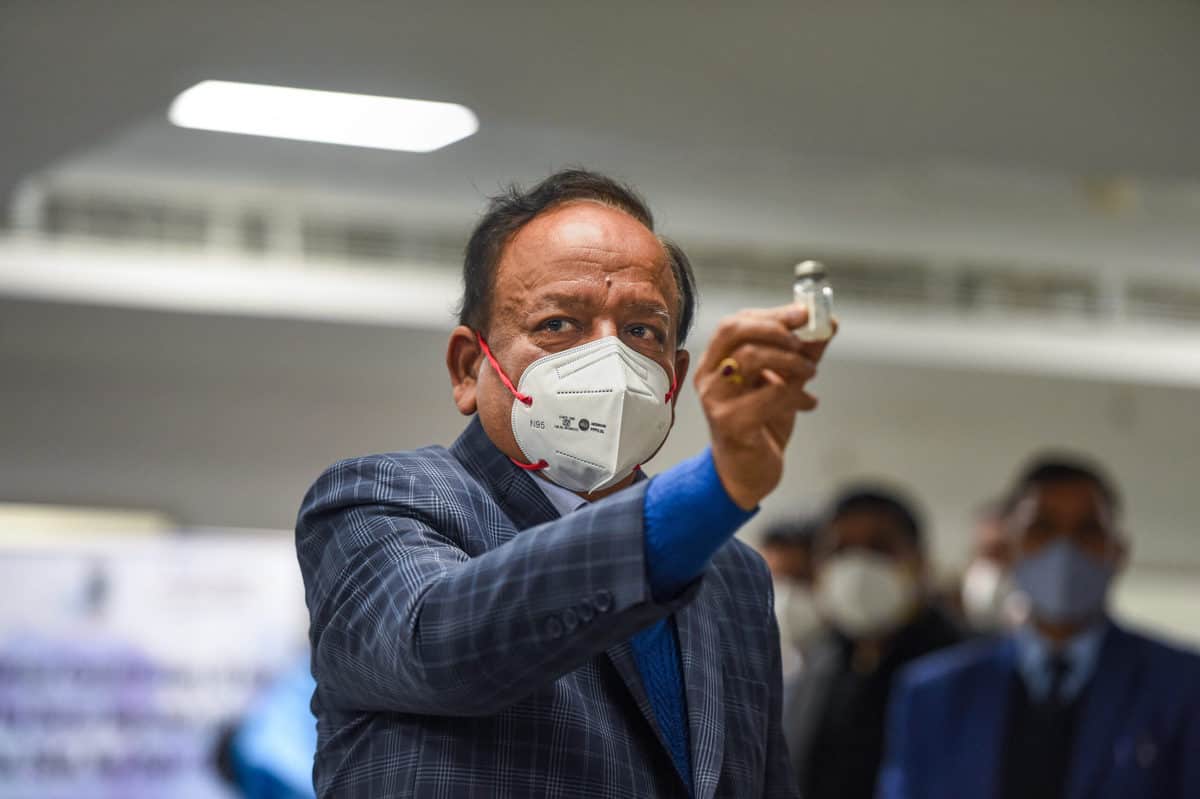
Those of us who saw our country going through some bizarre moments while fighting COVID-19 last year, could never have expected a repeat of the farce. Readers will remember this time of the year, 12 months ago when people were asked to bang empty thalis, clap and blow conches to drive away the virus. The AYUSH ministry pushed some untested immunity building drugs, Patanjali launched Coronil claiming it was WHO approved. However, all this pales in comparison with the latest – the Tika Utsav or the Vaccine Festival, where the hon’ble PM has asked all states to celebrate four days of vaccination.
People are being encouraged to get themselves vaccinated during this week, especially because of two national holidays that fall come on Tuesday and Wednesday However, what is strange is the name – we are calling something as harrowing as a vaccination a festival. What is even more ironical is that this festival if coming at a point when there are major stockouts of vaccines across the country. The PM’s campaign will increase demand, but we have a serious supply problem now. Most states are worried their limited stocks will run out and the centre is unable to procure fresh supplies.
This week, the number of COVID-19 cases crossed 1.5 lakh a day-mark for the first time; and we must now get worried. Not only do we have more daily cases than ever, but we also find the virus moving to states that were spared last year during the first wave. The increase in cases in Uttar Pradesh and Chhattisgarh is ominous, and if this trend continues, we have a battle on our hands in tackling the pandemic in areas that suffer from extremely poor health infrastructure.
The night curfew is back in several cities, and weekends are now, preferably, spent at home. As the COVID-19 numbers go up at an alarming pace in the second wave of the pandemic, we must look for solutions, some from last year and some new ones that address recent concerns. This phase is increasingly getting characterized by a larger number of younger people contracting the infection and a significant increase in cases in rural India. The virus itself seems to have mutated and there are various estimates on the number of mutant varieties on the prowl. The World Health Organization (WHO) has urged all countries to increase the sequencing of the COVID-19 virus and share information with the rest, so that the picture gets clearer on how the virus is mutating.
As we rush to tackle this surge, we must go back to the basics. Hand washing, wearing masks, physical distancing, avoiding gatherings and closed spaces are simple behavioural patterns that need to be established and enforced. As the infection spreads, it is not just enough to issue advisories asking people to comply, it is imperative to make them mandatory and announce strict penalties.
Curfews at night and during weekends do not serve the purpose. They only give confusing signals. What is important is responsible behaviour on all days of the week. We have learnt a costly lesson last year—that shutting down businesses and closing public transport comes at a cost to the economy. With nearly a hundred million losing their jobs and livelihoods, the situation is alarming, again.
What we, therefore, need are restrictions on the number of people in closed spaces, like cinema halls, restaurants and even airplanes. Like in France, what we now need is a regional approach where local health officials and elected representatives can decide how to control the spread in the neighbourhood. This avoids the one size fits all pitfall of a centralised strategy and allows several innovations driven by local conditions, healthcare infrastructure and demographics. Since the virus has been spreading differently in different parts of the country, empowering the local heath machinery has become essential.
Another cause for worry is the spread of the pandemic in two of our most populous states, Uttar Pradesh and Bihar. In the first phase, the prevalence was low and the fatality rates were negligible. However, the second wave seems to have hit these states badly and the numbers coming in are scary. Here, one could look at the United Kingdom for a possible solution which enforced strict localized lockdown in areas like central Manchester and South Yorkshire, asking all restaurants, pubs and hospitality venues to stay closed. In some places, residents were banned from meeting others indoors.
At this hour, we need to open up vaccination for the masses. The 24-hour availability of vaccination facilities is a right step in this direction. We should quickly lift all age restrictions and allow everyone who comes forward to take the two doses of the vaccine. More vaccines should be released in the market and the ones that are stuck because of delays in granting approvals should be rolled out quickly. The corporate sector as well as the NGOs must be empowered to help the young and vulnerable population get vaccinated quickly.
It is also important to not lose sight of the requirements when the economy is starting to look up. Just when sales are increasing and tax collections improving, this second wave will hit consumption again. It is important to encourage consumers to spend, which will happen when incomes rise. Job creation will be crucial especially when unemployment is mounting. With inflation rearing its head again, it will be a reluctant customer who needs to be encouraged to buy more durables, food and consumables. States need to be compensated and paid their dues quickly so that they enable their markets to spur business activity.
What is essential is for the religious congregations to exercise all caution. The Kumbh Meal happening now is simply inexplicable. People in temples and mosques and churches often crowd around some areas and very few take precautions and follow hygiene standards. They should all be taught and cajoled to avoid religious places and pray at home. To pray together is to invite infection and nothing could be more ironical that getting infected even as one is praying for her own long life.
Amir Ullah Khan is a researcher at Centre for Development Policy and Practice (CDPP) based in Hyderabad.

